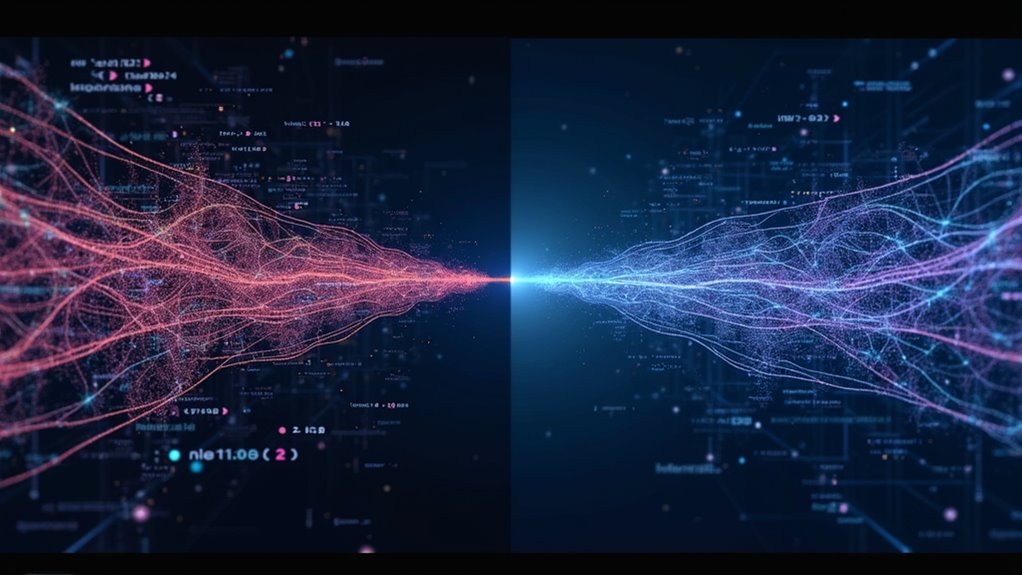RAGEN, introduced in 2025, tackles the notorious performance collapse plaguing language models during extended conversations. While competitors like GRPO fail after just 20 steps, RAGEN maintains stability for around 100 interactions—a fivefold improvement. The secret sauce? A clever Markov Decision Process approach combined with Proximal Policy Optimization. It’s not about throwing more computing power at the problem; RAGEN just trains smarter. The journey to digital sanity continues beyond these revolutionary first steps.
Researchers have cracked the code on one of AI’s most frustrating problems: the maddening tendency of language models to lose their minds during complex interactions. The breakthrough comes in the form of RAGEN, a reinforcement learning framework introduced in 2025 that’s specifically designed to keep large language models from going off the rails during extended conversations.
If you’ve ever watched an AI assistant confidently explain that the sky is made of cotton candy or insist that 2+2=5 after several back-and-forths, you’ve witnessed what experts call “performance collapse.” It’s like watching your brilliant friend slowly lose their marbles in real time. RAGEN addresses this digital mental breakdown by reformulating agent tasks as Markov Decision Processes and implementing something called the Reason-Interaction Chain Optimization algorithm. Fancy terms aside, it’s fundamentally teaching AI to maintain its sanity over time.
The framework’s secret sauce is its use of Proximal Policy Optimization (PPO) with Generalized Advantage Estimation. Translation: it’s more stable than its predecessor, GRPO. While GRPO agents start falling apart after just 20 steps in “Bandit” tasks, RAGEN’s approach holds steady until around 100 steps. Not perfect, but hey, that’s 5 times better!
RAGEN doesn’t just throw more computing power at the problem—it’s smarter about how it trains these models. It incorporates progressive reward normalization, sprinkles in a dash of entropy bonus (β=0.001 for the nerds keeping score), and even penalizes bad formatting to keep responses clean. The system was rigorously tested across minimalist symbolic environments to isolate fundamental learning challenges without distractions. The project features a modular design that includes streamlined components like Environment Manager, Context Manager, and Agent Proxy for enhanced flexibility and performance.
What makes this particularly impressive is that RAGEN succeeds where other approaches fail miserably. By March 2025, multiple sources confirmed that PPO consistently outperformed GRPO across various testing environments. Like other AI systems, RAGEN still faces challenges with data quality issues that can affect its accuracy in real-world applications.
For anyone building AI systems that need to maintain coherent, multi-turn conversations, RAGEN represents the difference between an assistant that helps you solve problems and one that slowly descends into digital madness. The days of your AI companion losing the plot might finally be numbered.







